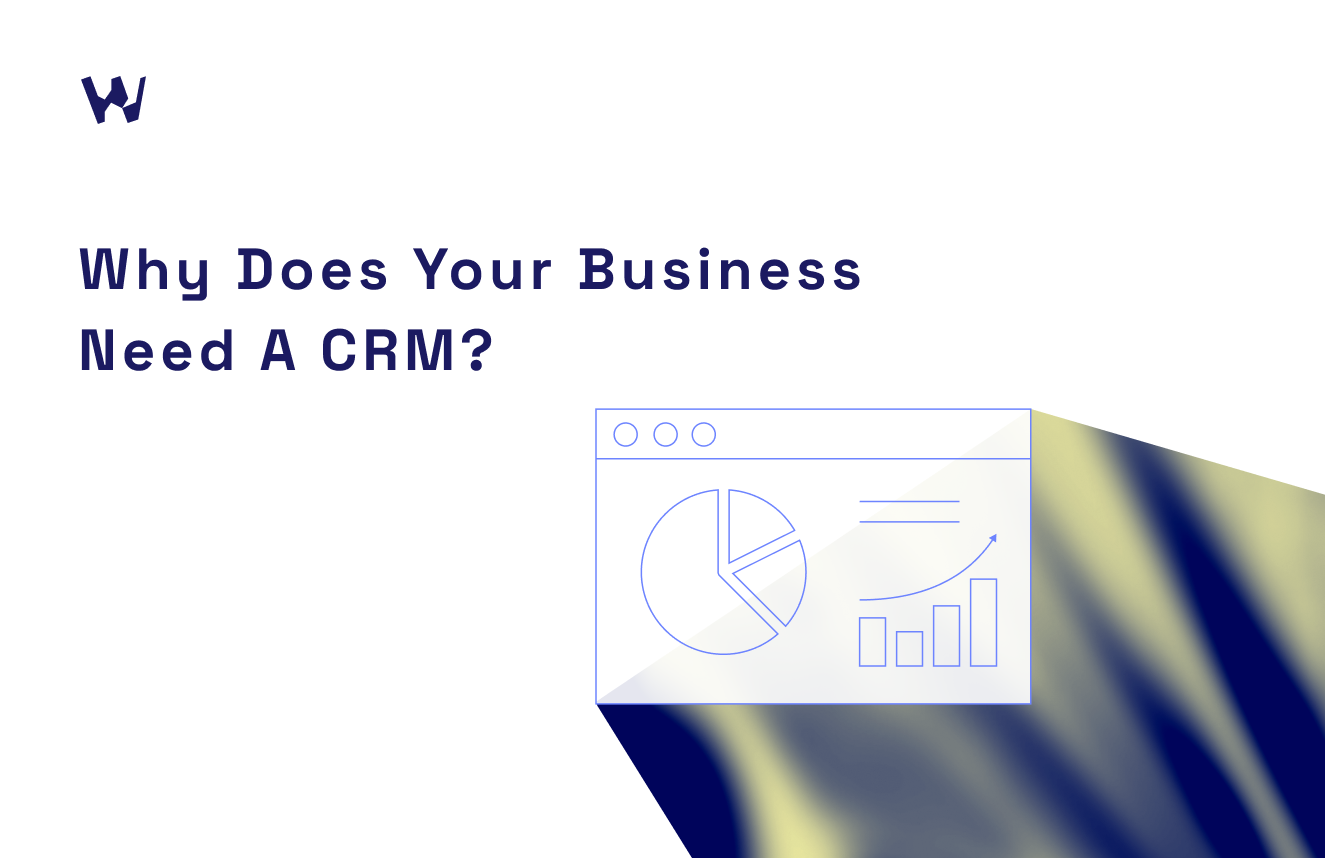Why Does Your Business Need a CRM?

In today's fiercely competitive business landscape, companies are constantly on the lookout for tools and strategies that can give them an edge.
One such tool, often heralded as a game-changer, is Customer Relationship Management (CRM) software. If you've ever found yourself pondering “why use CRM?” or “do I need a CRM?”, this article is tailored for you.
Using a CRM can boost your conversion rate up to 300%, with an average return of $8.71 for each dollar spent this powerful tool can significantly help your business.
What does a CRM do?
At its core, a CRM is a technology designed to manage and analyze customer interactions throughout the entire lifecycle. It assists businesses in staying connected with their customers, streamlining processes, and enhancing profitability.
- Data centralization: CRM systems pull together various bits of customer data into one unified platform. This move allows businesses to get rid of information silos and ensure that every team member has access to the same up-to-date data.
- Task automation: Mundane, repetitive tasks can bog down any team. CRMs take on these routine chores, allowing your staff to focus on higher-level responsibilities.
- Insight generation: With data-driven reports and analytics, businesses can gain an in-depth understanding of customer preferences, behaviors, and trends.
In essence, a CRM acts as the backbone of a business, offering a centralized hub where information is not only stored but also transformed into actionable insights. You can enhance your business even more with a custom CRM solution.
Who uses a CRM?
While initially, you might think that only big corporations use CRMs, that's far from the truth.
1. Start-ups and small businesses
With many CRM free software for small businesses options available, even the most bootstrapped startup can tap into the benefits. The plethora of CRM software for small businesses ensures that they don't miss out on the advantages larger corporations enjoy.
2. Medium to large enterprises
As businesses scale up, the sheer volume of customer data can be overwhelming. That's why a CRM becomes an indispensable tool, offering structured data management and customer insight capabilities.
Check this case to see the benefits of custom CRM for a human capital platform.
3. Freelancers and consultants
Even solo professionals can leverage CRM tools to stay on top of their client interactions, project timelines, and invoicing.
Regardless of the size or nature of the business, a CRM finds its rightful place, proving that it's an essential tool for anyone serious about customer relationship management.
Importance of CRM
To sum things up and answer the questions why CRM is required and why CRM is important:
- Customer retention: One of the mainstays of a successful CRM business approach is the emphasis on retaining existing customers. By providing insights into customer behavior, CRMs make it easier for businesses to anticipate needs and address issues proactively.
- Informed decision-making: With real-time data and analytics at their fingertips, businesses can make decisions that are in line with market trends and customer expectations.
- Competitive advantage: In the race to acquire and retain customers, businesses equipped with a robust CRM often have the upper hand, as they're better positioned to offer value at every stage of the customer journey.
As the business world continues to evolve, the importance of a CRM only magnifies. It's not just a tool but a strategic partner, driving businesses towards excellence and sustainable growth.
How can a CRM benefit my business?
Delving deeper into the reasons why you need a CRM:
- Enhanced customer experiences: With a CRM, businesses can tailor their interactions based on customer history, ensuring every touchpoint is personalized and meaningful.
- Efficiency boost: By taking over repetitive tasks and providing integrated tools, CRMs help teams ramp up their productivity.
- Sales and marketing alignment: CRMs bridge the gap between sales and marketing teams, ensuring both are working from the same playbook and moving in sync.
With a slew of benefits ranging from operational to strategic, a CRM offers holistic solutions that drive business growth and improve customer relationships.
In conclusion
Whether you're just setting out in the business world or leading an established enterprise, the invaluable support a CRM provides cannot be overstated. It's not just about managing customer relationships but about optimizing every facet of your business operations.
If you're still on the fence, ponder no more. The answer to "Do I need a CRM?" is a resounding YES.
And if you’re looking for a seasoned team of developers to create a custom CRM solution — contact us today to get the best offer!